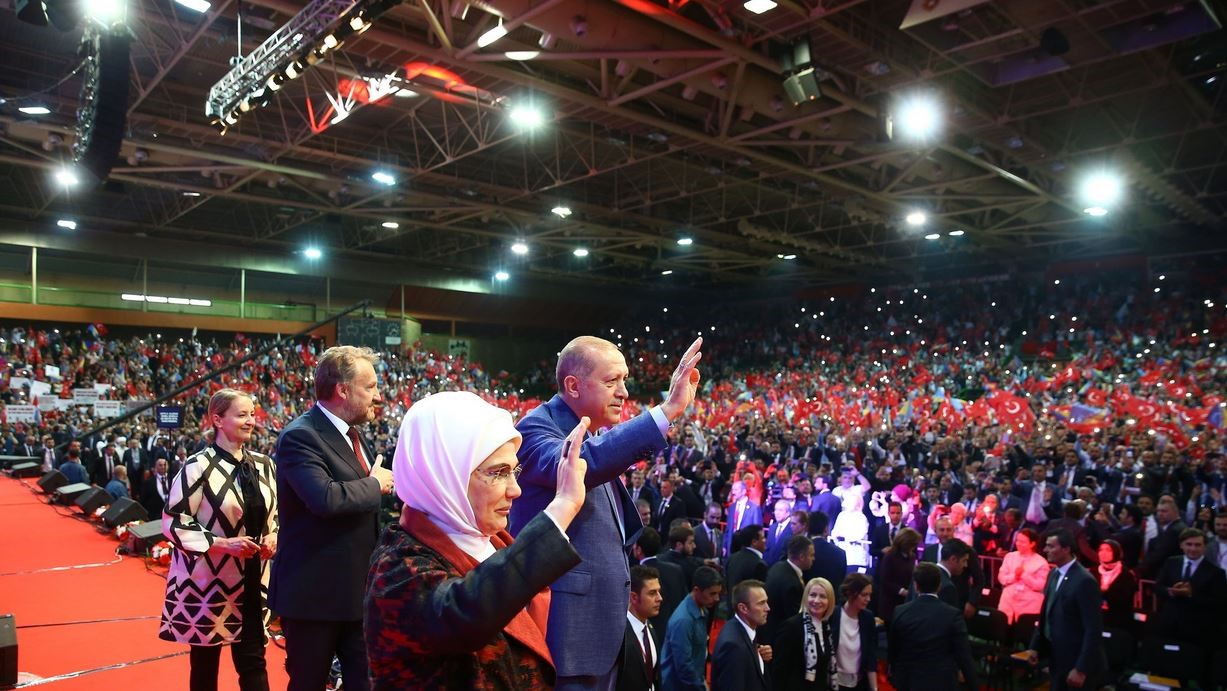A Turkish presidential candidate held a rally in front of Austrian, German, Dutch and other European Diaspora, in Bosnia and Herzegovina (BiH). Yes, you read that right.
Ahead of Turkey’s snap parliamentary and presidential elections scheduled for June 24, Turkish President Recep Tayyip Erdogan held an election rally in Sarajevo, after three European countries, Austria, the Netherlands and Germany, banned Turkish politicians from doing so on their turf. The rally gathered mostly Turkish diaspora from throughout Europe, however Bosnian Muslims were in attendance as well.
So why would the government of BiH allow this? Well for starters, it is not the first time BiH allowed foreign presidential candidates to campaign in their country. Take for example then-Croatian presidential candidate Kolinda Grabar Kitarovic, holding a pre-election rally in Mostar. While at the rally, Grabar-Kitarovic announced that she would, if elected, protect the Croatian people in BiH, who make up 15 percent of BiH’s population. Less than a month later, she was elected with 90 percent of the diaspora vote, and it probably didn’t hurt that Grabar-Kitarovic’s party, the HDZ (Croatian Democratic Union), was bussing eligible Bosnian-Croats (from BiH) to vote in consular offices for an international election.
President Erdogan’s rally in Sarajevo was no surprise to locals, where Ottoman influence comes in all shapes and sizes. From the vocabulary to the coffee to public transportation, Turkey is a natural partner for BiH’s Muslim population due to its religious ties, as well as their similar history and culture. Pair this with President Erdogan’s declaration as the “protector of Europe’s Muslims,” and it becomes no wonder supporters came into Sarajevo by the busload.
This is not to say that all of BiH welcomed Erdogan with open arms. Many critics accused Turkey’s leader of attacking Bosnia’s fragile democratic state. However, critical opinions of Erdogan’s trip fell on deaf ears among the leading Bosniak (Bosnian Muslim) party in the country, the Party of Democratic Action (SDA), whose President, Bakir Izetbegovic, seems to be drawn to Erdogan’s promise of protection as well as his commanding personality. And he is not alone in his opinion. IRI’s most recent poll in BiH found that 76 percent of Bosniaks had a positive opinion on Turkey’s role in Bosnia, while 29 percent of all Bosnians considered Turkey to be BiH’s greatest ally.
Strengthening BiH’s sovereignty has been a key component of IRI’s work in the country. As a way of strengthening regional sovereignty, IRI created its regional Western Balkans Task Force to provide leading parliamentarians and thought leaders from the region an open space to frankly discuss the effects of foreign influence. Simultaneously, IRI provides data from issue-based polling to task force members to objectively analyze the public perception of foreign actors in the region.
The effect of Erdogan’s efforts on BiH’s October elections will be something to follow in the upcoming months — after all, he did try to influence elections in Germany. Ankara’s attempts to project power beyond the country’s physical borders reveals Erdogan’s ultimate goal of becoming a great regional power, no matter the cost. Time will tell if his Balkan investment will reap dividends or not.
Top